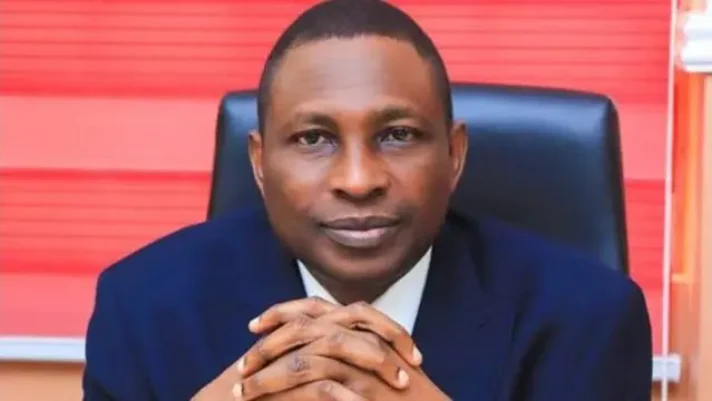By Chinasaokwu Helen Okoro
THE Nigerian Bar Association (NBA) has threatened to sue the Chairman of Economic and Financial Crimes Commission (EFCC), Ola Olukoyede, to court for alleging that lawyers aid illicit financial flows into offshore accounts.
However, stakeholders in the justice system identified inadequate inter-agency collaboration within the nation’s judicial framework as the root of the slow pace in justice administration in the country.
Olukoyede had in his speech at the opening of the 6th Annual Criminal Law Review Conference in Abuja, yesterday, insisted that no mega financial fraud could be perfected without the input of lawyers.
“The most traumatic discovery of the EFCC in recent years was the subjugation of national interest and well-being to personal interest by lawyers, who aided briefcase foreign investors to fleece the nation in dubious transactions.
“The P&ID scam, the Mambilla Power Project and Sunrise issues are cases in point,” the EFCC boss stated, while calling for action to stop what he described as “obscene legal fees” that senior lawyers receive from political office holders without recourse to financial regulations.
Reacting to the allegation, the President, Afam Osigwe (SAN), berated the EFCC chairman for portraying members of the legal profession in a bad light.
Osigwe, who spoke after NBA unveiled the logo and theme of its 2025 Annual General Conference billed to hold in Port Harcourt, Rivers State, maintained that the EFCC boss lacked the evidence to support his allegation.
He said: “We challenge the EFCC chairman to come up with empirical evidence; and if he cannot, he should never make such statement again.
“Unfortunately, he is one of us. He is a lawyer. We had earlier drawn his attention to the fact that many men and women that make the investigation and prosecution of cases by the EFCC worthwhile are lawyers. Is he then suggesting that his lawyers also aid money laundering and financing of terrorism?
“It is common in Nigeria for people to make hasty generalisations, yet very few lawyers, to my knowledge, have been prosecuted by the EFCC for aiding money laundering.”
THE stakeholders also noted that the deficiency of modern technologies was a significant contributing factor to the substandard execution of justice in Nigerian courts and law enforcement procedures.
They stated this at the Network of Justice Reforms Teams (JTRTs) Conference organised by the European Union (EU)-funded Rule of Law and Anti-Corruption (RoLAC II) Programme of International IDEA, in partnership with the Federal Ministry of Justice (FMoJ).
Spanning three days, the JTRTs conference united various criminal justice institutions to deliberate on justice sector reform, advocate reform models and establish new objectives for enhancing justice delivery in Nigeria.
At the end of the summit, Project Manager Component I – Criminal Justice Reform of the RoLAC II Programme, International IDEA, Oluwatoyin Badejogbin, stressed the need to speed up justice delivery and decongest the correctional facilities.
Badejogbin said it was evident that congestion in correctional facilities, delays in criminal case prosecutions, as well as civil justice proceedings, stem from the lack of coordination within the criminal justice system.
“When crucial agencies fail to communicate effectively with one another, critical aspects are overlooked. One agency expects the other to fulfil certain responsibilities, while the other anticipates reciprocal actions, resulting in a breakdown of processes,” Badejogbin added.
The RoLAC II coordinator highlighted that the primary objective of the retreat was to identify existing gaps and address them effectively by the conclusion of the justice reform team session.
Further elaborating on the retreat, Prof Mohammed Tabiu, a facilitator with RoLAC II, emphasised the added advantage of inclusivity, as the retreat engaged not only stakeholders from the judiciary but also various other entities in a coordinated manner.


